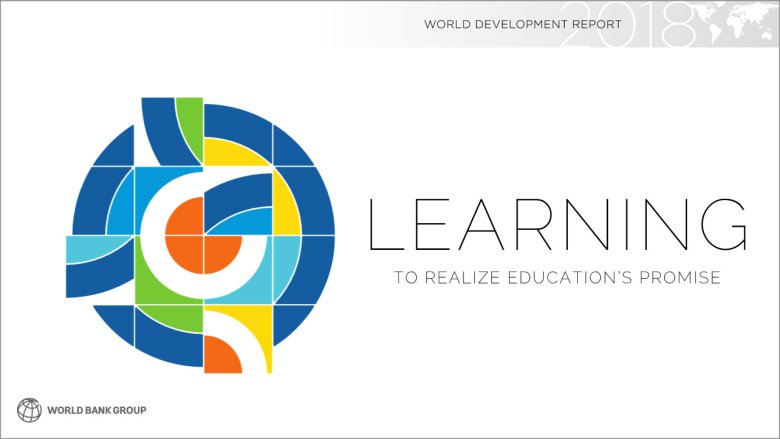The world is not learning: millions of students cannot read, write or do simple calculations, even after several years of schooling. In many developing countries, the top 25% of students struggle to outperform the OECD’s bottom 25%.
The World Bank’s new 2018 World Development Report (WDR) is the first devoted entirely to education and paints a stark picture of the scale of the global learning crisis. It recognizes that we urgently need to go beyond technical thinking in education and look seriously at the systemic and political issues which are holding back progress.
Understanding the global learning crisis
The WDR identifies what lies behind this crisis: unskilled and unmotivated teachers, unprepared learners, poor school management and badly utilised resources. Money often does not reach schools; teaching resources and textbooks do not make it to the classroom and are not used once they are there. These factors are driven by technical and political challenges, which frustrate attempts at reform.
The discussion of technical challenges focuses on system coherence – whether the roles, resources and incentives in the education system are aligned, and aligned with learning. For example, does the system regularly and accurately collect information on student learning? Are teachers motivated to improve learning (either intrinsically or extrinsically)? Do teachers receive the support and resources they need?
The discussion of political challenges focuses on whether the interests of powerful stakeholders are aligned with learning, and with each other. For example, do politicians expect the electorate to reward or punish them based on student performance? Can parents easily judge if their children are learning? Do patronage networks and nepotism in the bureaucracy, or the actions of unions, make it hard to implement reforms to improve learning?
To address these challenges, the WDR recommends improving information on learning; building coalitions and strengthening incentives to prioritise learning; and encouraging innovation and agility in the design and implementation of education policies.
Priorities for solving the crisis
The WDR has made a strong start. However, much more work needs to be done to develop practical and effective approaches to address these challenges. To overcome the global learning crisis, we need to answer four questions:
1. Is the incoherence technical or political?
To improve the coherence of the education system, we need to understand whether its incoherence is solely due to technical features, or their interaction with the incentives and priorities of political actors. We need a fuller theory of why incoherence emerges, how it interacts with politics and why it persists in different contexts – something we began to discuss during the 2017 Research on Improving Systems of Education (RISE) conference.
2. Who has an interest in reforming the education system?
Education is a good investment, but realising this investment may take a generation. In contrast, political time horizons are often too short to demonstrate tangible improvements in learning. Other stakeholders face competing interests. Some private sector firms benefit from an educated workforce, but different industries have different skill needs. They may not trust that politicians can transform higher taxes today into a skilled workforce in a decade. This scepticism also shapes parental choice – contributing to the boom in private schooling and political competition that focuses on tangible and visible education inputs. Understanding how different actors balance these interests is crucial to assembling the building blocks of a coalition.
3. What helps build a coalition for learning?
In the last few decades, some countries have achieved significant improvements in learning. Understanding which entry-points were used, how political competition helped or hindered, who was mobilised, how and at what level of the system will cast vital light on how to build coalitions. ODI and the University of Manchester have begun to address these questions, but more work is needed to develop practical approaches.
4. Should you pursue a grand strategy, or problem-by-problem reform, or both?
There are only a few examples of successful, system-wide education reforms – testament to how hard building coalitions and executing policies can be. Whole system reforms have been successful in contexts with strong capacity and political coherence, such as Chile, but many countries lack these conditions. We therefore need to understand when, where, and if, problem-by-problem reforms can be used to produce sustainable and long-term improvements.
Policy design and innovation is still important. However, policies won’t be effective unless the challenges of system incoherence and misaligned political incentives are met. Answering these four questions is therefore crucial to addressing the global learning crisis.

